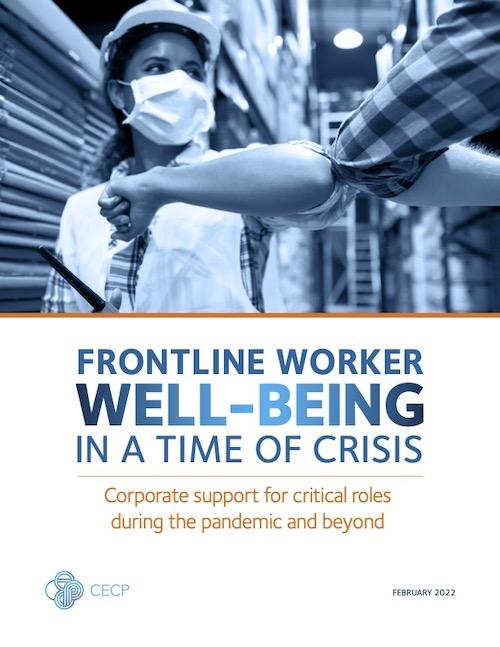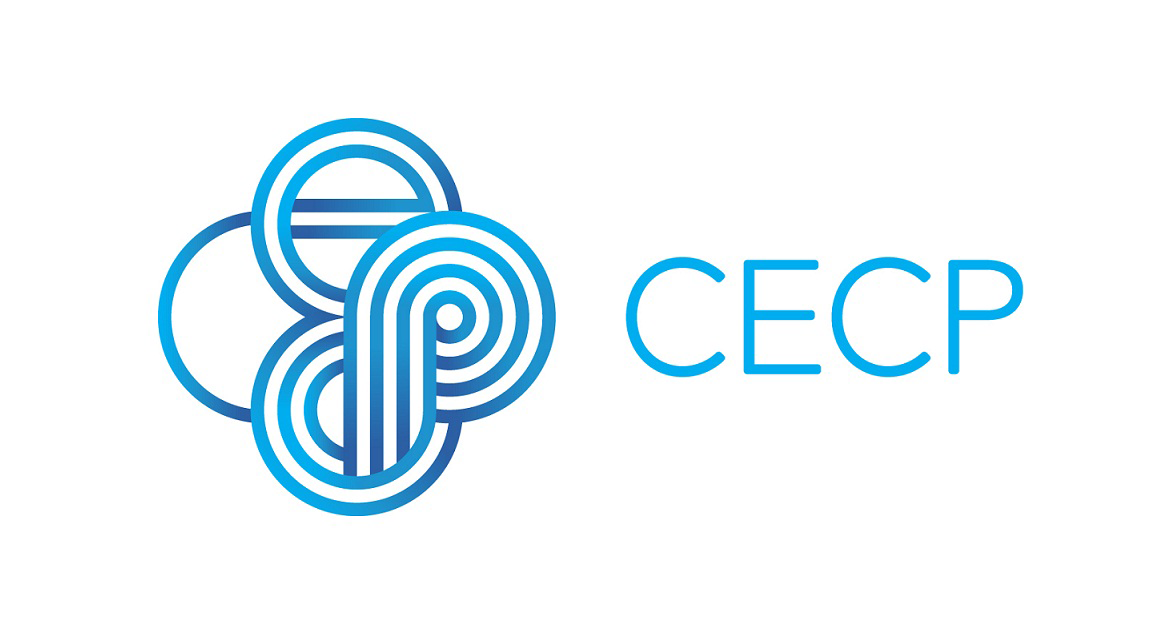Report Reveals Best Practices for Companies to Protect, Attract, Retain, and Upskill Frontline Workers

NEW YORK, February 7, 2022 /3BL Media/ - Chief Executives for Corporate Purpose© (CECP), with support from the Ford Foundation, released the Frontline Worker Well-Being in a Time of Crisis report. The research explores how companies have supported their frontline workforce employed in manufacturing, processing, and warehousing in U.S. consumer staples sectors the past 18-24 months during COVID-19 and how the lessons learned from that time are now influencing approaches to human capital management.
The report also makes recommendations for companies to better protect, attract, retain, and upskill frontline workers and proposes focusing on three main areas. First, prioritizing employee’s health and safety, as well as offering a thorough frontline employee value proposition, including benefits such as paid time off (PTO). Then, empowering and engaging the workforce and communities by strengthening communications, listening to workers’ voices, and conducting local outreach. And lastly, supporting innovation by building alignment across the whole business, such as integrating DE&I into daily operations.
Key findings of the report include:
- Wage is not the only critical factor for workers; stability of pay, paid time off, safety, shift schedule, and flexibility, plus a sense of purpose and dignity are also vital.
- 65% of consumer staples companies are permanently retaining at least some of the measures they put in place to support frontline workers in manufacturing, processing, and warehousing environments[1].
- Corporate support for frontline workers was especially meaningful for Black, Indigenous, and People of Color (BIPOC), women, and socioeconomically disadvantaged employees, who were disproportionately impacted by COVID-19.
- Half of the companies surveyed are making major changes to how they define and measure frontline worker well-being because of the pandemic and social justice movements.[2]
- A third of respondents cite dissatisfaction with aspects of frontline jobs (e.g., pay, benefits, or shift schedules) as the primary drivers of the recent labor shortage. Caretaking responsibilities and feeling unsafe at work accounted for an additional 20% of responses, while 17% felt the shortage predominantly came from external factors (e.g., unemployment assistance and low immigration). [3]
“We must put ourselves in the shoes of frontline workers and understand the gap between the protocols needed to keep them safe and their lived experience,” said Darren Walker, president of the Ford Foundation. “Companies collaborating with their workers can bring more equality, opportunity and inclusion in our economy and in the workplace.”
“Equity can look like paying your frontline workers more and creating educational incentives for them,” Martin J. Walsh, U.S. Secretary of Labor said. “By training people, companies can help employees elevate themselves to the next career step.”
“The role of frontline workers became paramount as businesses and society began realizing their role in maintaining the sectors’ critical infrastructure and operations,” said Nandika Madgavkar, Senior Director, Strategy & Growth, CECP. “Consumer goods companies can use the findings from this work to enhance and adopt new policies and practices geared towards future-proofing the well-being of these frontline workers.”
The research is based on desktop reviews of more than 70 sources ranging from peer-reviewed publications to reports by consulting firms and relevant news articles; one-on-one interviews with eight individual food, beverage, and consumer staples companies with operations in the U.S.; and results of CECP Pulse Surveys, distributed to 400+ senior corporate leaders at CECP-affiliated companies and other contacts.
CECP sincerely thanks Katherine Bostick, Senior Advisor to CECP for leading the research, as well as the companies that participated in this research including Campbell Soup Company, Chobani, The Devils Backbone Brewing Company, Freshpet, Gusmer Enterprises, Inc., Walmart, and Welch’s.
About Chief Executives for Corporate Purpose (CECP)
CECP is a CEO-led coalition that believes that a company’s social strategy — how it engages with key stakeholders including employees, communities, investors, and customers —determines company success. Founded in 1999 by actor and philanthropist Paul Newman and other business leaders to create a better world through business, CECP has grown to a movement of more than 200 of the world’s largest companies that represent $11.2 trillion in revenues, $23 billion in societal investment, 14 million employees, and $21 trillion in assets under management. CECP helps companies transform their social strategy by providing customized connections and networking, counsel and support, benchmarking and trends, and awareness building and recognition. For more information, visit http://cecp.co.
CECP Media Contact
Katie Leasor
kleasor@cecp.co
[1]CECP Pulse Survey. Topic: Permanent Frontline Safety Practices. (2021, September). Chief Executives for Corporate Purpose. Field dates: Aug 31, 2021 – Sept 14, 2021
[2] CECP Pulse Survey. Topic: Frontline Worker Well-being. (2021, September). Chief Executives for Corporate Purpose. Field dates: Sept 14, 2021 – Sept 21, 2021
[3] CECP Pulse Survey. Topic: Frontline Labor Shortage. (2021, October). Chief Executives for Corporate Purpose. Field Dates: Oct 19, 2021 – Oct 26, 2021

